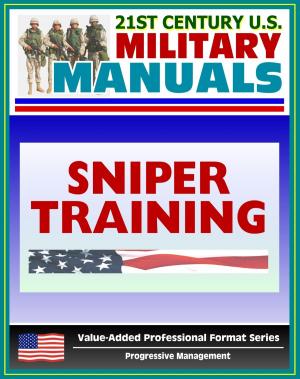Honor and Fidelity: The 65th Infantry in Korea, 1950-1953 - U.S. Army in the Korean War - Puerto Rican Soldiers, Borinqueneers, X Corps, Injin, Seoul, Plight of the Glosters, Defeat at Outpost Kelly
Nonfiction, History, Asian, Korean War, Military, Asia| Author: | Progressive Management | ISBN: | 9781311278500 |
| Publisher: | Progressive Management | Publication: | February 14, 2016 |
| Imprint: | Smashwords Edition | Language: | English |
| Author: | Progressive Management |
| ISBN: | 9781311278500 |
| Publisher: | Progressive Management |
| Publication: | February 14, 2016 |
| Imprint: | Smashwords Edition |
| Language: | English |
Professionally converted for accurate flowing-text e-book format reproduction, this study reviews the performance of the 65th Infantry throughout the Korean war, providing insights not only into the regiment's unique problems but also into the status of the U.S. Army's combat forces during one of the most trying periods in its history.
Originally formed at the turn of the nineteenth century to protect America's strategic interests in the Caribbean, the 65th Infantry was composed of locally recruited Puerto Rican soldiers led primarily by non-Hispanic "continental" officers. Although in existence for almost fifty years, the 65th had not experienced intense combat until it was committed to the Korean peninsula in the initial months of the war. There, despite its lack of previous wartime service, the regiment did extremely well from September 1950 to August 1951, establishing a solid reputation as a dependable infantry unit and a mainstay of the heavily embattled 3d Infantry Division. After that period, however, its performance began to suffer as experienced cadre rotated out of the regiment and were replaced by new leaders and soldiers who lacked the skills and special cohesive bonds displayed by their predecessors. The net result was a highly publicized series of incidents and disciplinary actions that have never been adequately explained or understood.
Its findings underscore the critical impact of personnel-rotation policies, ethnic and organizational prejudices, and the work of small-unit leaders on combat readiness and battlefield success. They also illustrate the critical role of senior leaders in analyzing problems in these areas in a timely fashion and instituting effective reforms. For the 65th, a catastrophic shortage of trained NCOs, unaddressed language problems, and inept command leadership temporarily undermined its combat effectiveness. Making matters worse, senior commanders reacted in a heavy-handed manner with little analysis of what was really going on.
The regiment's colors remained in Korea until November 1954, when the unit returned to Puerto Rico. Today, the 1st Battalion of the 65th Infantry remains as part of the Puerto Rican National Guard, a testimony to a unique combat unit that served the United States Army well for over one hundred years.
Chapter 1 - Prologue: Before Korea. * The 65th in the Period of the Two World Wars * Postwar Doldrums and then Renewal * Chapter 2 - From San Juan to Pusan * The 65th Infantry Organizes for Korea * The 65th Departs for Asia * The Borinqueneers Arrive in Korea * The Regiment Enters Combat * Chapter 3 - With X Corps in North Korea: November-December 1950 * Advance into Northeastern Korea * X Corps in Crisis * Evacuation from Hungnam to Pusan * Chapter 4 - From Pusan to the Imjin: January-March 1951 * Operations Wolfhound and Thunderbolt * Preparing to Liberate Seoul * On to Seoul and the Imjin * Chapter 5 - From the Imjin Back to Seoul: April 1951 * The Chinese Spring Offensive of 1951 * The Plight of the Glosters * Eighth Army Regroups * Chapter 6 - From Seoul to the Ch'orwon Valley: May-July 1951 * Battle Below the Soyang * Toward the Iron Triangle * Fighting for the Sobang Mountains * Chapter 7 - Operations in the Iron Triangle: August-December 1951 * Operation Cleanup I and II * Into the Iron Triangle Once Again * Defending Line Jamestown * Chapter 8 - In Reserve: January-June 1952 * Major Changes Within the 65th Infantry * Korea 1952: The Outpost War * Personnel Problems in Eighth Army. * Chapter 9 - Defeat at Outpost Kelly: July-September 1952 * The Struggle for Outpost Kelly * Counterattack and Defeat * Analyzing the Failure * Chapter 10 - Collapse at Jackson Heights: October 1952 * Defense and Loss of Jackson Heights * Breakdown on Jackson Heights * Assessing the Failure * Chapter 11 - Courts-Martial, Reconstitution, and Redemption: November 1952-July 1953 * A Time of Uncertainty * Rebuilding the Regiment * Vindication and Homecoming
Professionally converted for accurate flowing-text e-book format reproduction, this study reviews the performance of the 65th Infantry throughout the Korean war, providing insights not only into the regiment's unique problems but also into the status of the U.S. Army's combat forces during one of the most trying periods in its history.
Originally formed at the turn of the nineteenth century to protect America's strategic interests in the Caribbean, the 65th Infantry was composed of locally recruited Puerto Rican soldiers led primarily by non-Hispanic "continental" officers. Although in existence for almost fifty years, the 65th had not experienced intense combat until it was committed to the Korean peninsula in the initial months of the war. There, despite its lack of previous wartime service, the regiment did extremely well from September 1950 to August 1951, establishing a solid reputation as a dependable infantry unit and a mainstay of the heavily embattled 3d Infantry Division. After that period, however, its performance began to suffer as experienced cadre rotated out of the regiment and were replaced by new leaders and soldiers who lacked the skills and special cohesive bonds displayed by their predecessors. The net result was a highly publicized series of incidents and disciplinary actions that have never been adequately explained or understood.
Its findings underscore the critical impact of personnel-rotation policies, ethnic and organizational prejudices, and the work of small-unit leaders on combat readiness and battlefield success. They also illustrate the critical role of senior leaders in analyzing problems in these areas in a timely fashion and instituting effective reforms. For the 65th, a catastrophic shortage of trained NCOs, unaddressed language problems, and inept command leadership temporarily undermined its combat effectiveness. Making matters worse, senior commanders reacted in a heavy-handed manner with little analysis of what was really going on.
The regiment's colors remained in Korea until November 1954, when the unit returned to Puerto Rico. Today, the 1st Battalion of the 65th Infantry remains as part of the Puerto Rican National Guard, a testimony to a unique combat unit that served the United States Army well for over one hundred years.
Chapter 1 - Prologue: Before Korea. * The 65th in the Period of the Two World Wars * Postwar Doldrums and then Renewal * Chapter 2 - From San Juan to Pusan * The 65th Infantry Organizes for Korea * The 65th Departs for Asia * The Borinqueneers Arrive in Korea * The Regiment Enters Combat * Chapter 3 - With X Corps in North Korea: November-December 1950 * Advance into Northeastern Korea * X Corps in Crisis * Evacuation from Hungnam to Pusan * Chapter 4 - From Pusan to the Imjin: January-March 1951 * Operations Wolfhound and Thunderbolt * Preparing to Liberate Seoul * On to Seoul and the Imjin * Chapter 5 - From the Imjin Back to Seoul: April 1951 * The Chinese Spring Offensive of 1951 * The Plight of the Glosters * Eighth Army Regroups * Chapter 6 - From Seoul to the Ch'orwon Valley: May-July 1951 * Battle Below the Soyang * Toward the Iron Triangle * Fighting for the Sobang Mountains * Chapter 7 - Operations in the Iron Triangle: August-December 1951 * Operation Cleanup I and II * Into the Iron Triangle Once Again * Defending Line Jamestown * Chapter 8 - In Reserve: January-June 1952 * Major Changes Within the 65th Infantry * Korea 1952: The Outpost War * Personnel Problems in Eighth Army. * Chapter 9 - Defeat at Outpost Kelly: July-September 1952 * The Struggle for Outpost Kelly * Counterattack and Defeat * Analyzing the Failure * Chapter 10 - Collapse at Jackson Heights: October 1952 * Defense and Loss of Jackson Heights * Breakdown on Jackson Heights * Assessing the Failure * Chapter 11 - Courts-Martial, Reconstitution, and Redemption: November 1952-July 1953 * A Time of Uncertainty * Rebuilding the Regiment * Vindication and Homecoming















